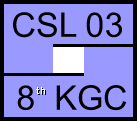|
|
We will speak about three traditions in Logic:
* Classical, usually associated with Frege, Hilbert, Gödel, Tarski, and others;
* Intuitionistic, founded by Brouwer, Heyting, Kolmogorov, Gödel, Kleene, and others;
* Explicit, which we trace back to Skolem, Curry, Gödel, Church, and others.
The classical tradition in logic based on quantifiers $\forall$ and
$\exists$ essentially reflected the 19th century mathematician's way of
representing dependencies between entities. A sentence $\forall x\exists
y A(x,y)$, though specifying a certain relation between $x$ and $y$, did
not mean that the latter is a function of the former, let alone a computable one.
The Intuitionistic approach provided a principal shift
toward the effective functional reading of the mathematician's
quantifiers. A new, nonTarskian semantics had been suggested by Kleene:
realizability that revealed a computational content of logical
derivations. In a decent intuitionstic system, a proof of $\forall
x\exists y A(x,y)$ yields a program $f$ that computes $y=f(x)$. \par
Explicit tradition makes the ultimate step by using representative
systems of functions instead of quantifiers from the very beginning.
Since the work of Skolem, 1920, it has been known that the classical
logic can be adequately recast in this way. Church in 1936 showed that
even the very basic system of function definition and function
application is capable of emulating any computable procedure. However,
despite this impressive start, the explicit tradition remained a
Cinderella of the mathematical logic for decades. Now things have
changed: due to its very explicitness, this third tradition became the
one most closely connected with Computer Science.
In this talk we will show how switching from quantifiers to explicit
functional language helps problem solving in both theoretical logic and its
applications. A discovery of a natural system of self-referential proof
terms, {\em proof polynomials}, was essential in the solution to an open
problem of G\"odel concerning formalization of provability. Proof
polynomials considerably extend the Curry-Howard isomorphism and lead to
a joint calculus of propositions and proofs which unifies several
previously unrelated areas. It changes our conception of the appropriate
syntax and semantics for reasoning about knowledge, functional
programming languages, formalized deduction and verification.
|
© 2002-2003 Kurt Gödel Society, Norbert Preining. |
2003-07-09


 | |

 Print this page
Print this page
